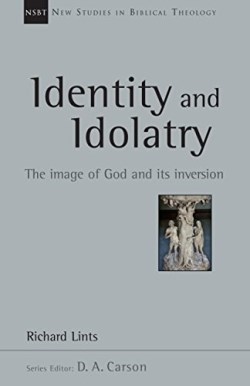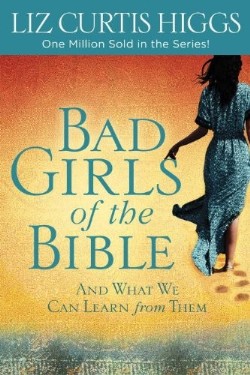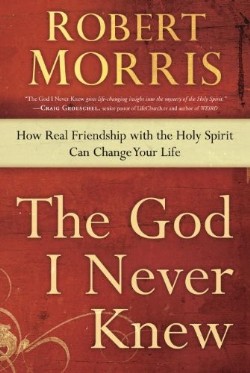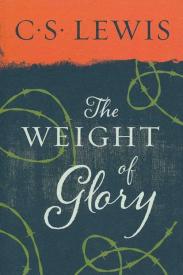Identity And Idolatry
$25.99
Series Preface
Author’s Preface
Abbreviations
1. Living Inside The Text: Canon And Creation
2. A Strange Bridge: Connecting The Image And The Idol
Getting Started On The Wrong Foot: Creation And Image
Human Identity And Human Nature
3. The Liturgy Of Creation In The Cosmic Temple
The First Stable As Prologue
The Liturgy Of Creation
The House That God Built
4. The Image Of God On The Temple Walls
Introduction
Image And Original
Signs Of Reflection
A Reflected Relationship
The First Table Background: Kings And Representatives
After The First Table: Sonship And Sacredness
Prelude To Idolatry
5. Turning The Imago Dei Upside Down: Idolatry And The Prophetic Stance
After Creation-whence Is The Image?
Divine Fidelity And The Image
The Decalogue And The Diatribe Against Idolatry
The Golden Calf-the ‘great Sin’ Of Idolatry
Covenantal Identity And Idolatry Across The Old Testament
Idolatry And Adultery
6. Inverting The Inversion: Idols And The Perfect Image
Turning The Story Upside Down
Setting The Context
Idolatry And The Gentile Mission
Theologies Of Idols: Romans 1 And 1 Corinthians 10
Narratives Of Idolatry: Acts 7 And 17
The Perfect Image
Being In The Image Of The Image
7. The Rise Of Suspicion: The Religious Criticism Of Religion
Idolatry As Ideological Criticism: The Stage Is Set
Idolatry As Psychological Projection
Idolatry As Alienation And Oppression
Idolatry And The Origin Of Religion
Friedrich Nietzsche (1844-1900)
8. Significance And Security In A New Key
The Crisis Of Identity And The Idolatries Of Consumption
Christian Identity And Plastic Narratives
An Eternal Story Told Across Time
Bibliography
Index Of Authors
Index Of Scripture References
Additional Info
“So God created man in his own image, in the image of God he created him; male and female he created them.” (Genesis 1:27)
Genesis 1:26-27 has served as the locus of most theological anthropologies in the central Christian tradition. However, Richard Lints observes that too rarely have these verses been understood as conceptually interwoven with the whole of the prologue materials of Genesis 1. The construction of the cosmic temple strongly hints that the “image of God” language serves liturgical functions.
Lints argues that “idol” language in the Bible is a conceptual inversion of the “image” language of Genesis 1. These constructs illuminate each other, and clarify the canon’s central anthropological concerns. The question of human identity is distinct, though not separate, from the question of human nature; the latter has far too frequently been read into the biblical use of ‘image’.
Lints shows how the “narrative” of human identity runs from creation (imago Dei) to fall (the golden calf/idol, Exodus 32) to redemption (Christ as perfect image, Colossians 1:15-20). The biblical-theological use of image/idol is a thread through the canon that highlights the movements of redemptive history.
In the concluding chapters of this New Studies in Biblical Theology volume, Lints interprets the use of idolatry as it emerges in the secular prophets of the nineteenth century, and examines the recent renaissance of interest in idolatry with its conceptual power to explain the “culture of desire.”
Addressing key issues in biblical theology, the works comprising New Studies in Biblical Theology are creative attempts to help Christians better understand their Bibles. The NSBT series is edited by D. A. Carson, aiming to simultaneously instruct and to edify, to interact with current scholarship and to point the way ahead.
in stock within 3-5 days of online purchase
SKU (ISBN): 9780830826360
ISBN10: 083082636X
Richard Lints
Binding: Trade Paper
Published: August 2015
New Studies In Biblical Theology # 36
Publisher: InterVarsity Press
Print On Demand Product
Related products
-
I Still Believe Small Group DVD Kit
$39.99Add to cartThe I Still Believe Small Group Kit combines a 5-episode DVD series, 35-day devotional journal, and thorough leader’s guide to serve as a five-week guided tour for small groups through the biblical response to commitment, sacrifice, grief, loss, and also God’s sovereignty and redemption. This kit comes as a ready-to-use package that makes it easy to implement small groups in your church or ministry.
Includes: Video Series, Leader’s Guide, and Study Journal
-
Bad Girls Of The Bible
$18.00Add to cartThis is the signature book that launched Higgs’s unique brand of “girlfriend theology,” now updated with a contemporary look and with study guide included. In looking at what we can learn from biblical women gone bad through her “novel approach to Bible study,” Liz brings to life ancient stories and unforgettably reveals how timeless truths of the Bible apply to today’s woman. With more than 1 million books sold in the series, this newly-repackaged edition appeals to women of all ages and stages of Christian faith.
-
God I Never Knew
$16.00Add to cartWho is the Holy Spirit, and exactly what does He do?
Many people find the Holy Spirit mysterious, confounding-even controversial. Why is the third person in the Godhead-the one Jesus said would be the believer’s ultimate source of truth and comfort-the source of such confusion?
In The God I Never Knew, Robert Morris clearly explains that the Holy Spirit’s chief desire is for relationship–to offer us the encouragement and guidance of a trusted friend. This insightful and biblically-based book moves beyond theological jargon, religious tradition, and cultural misconceptions to clarify what the Holy Spirit promises to do in your life:
* Dwell within you
* Be your helper
* Guide you into all truth
* Comfort you
* Pray for you
* Show you things to come
* Never leave youIt’s time to experience the Holy Spirit in a fresh, new way-to meet the God you may have never known.
Includes a small group study guide!
-
Weight Of Glory
$16.99Add to cartSelected from sermons delivered by C. S. Lewis during World War II, these nine addresses show the beloved author and theologian bringing hope and courage in a time of great doubt. “The Weight of Glory,” considered by many to be Lewis’s finest sermon of all, is an incomparable explication of virtue, goodness, desire, and glory. Also included are “Transposition,” “On Forgiveness,” “Why I Am Not a Pacifist,” and “Learning in War-Time,” in which Lewis presents his compassionate vision of Christianity in language that is both lucid and compelling.






Reviews
There are no reviews yet.